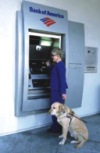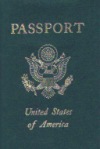|
Sci-Tech
The
World's Fastest Supercomputer
Researchers
at the National Nuclear Security Administration's Sandia
National Laboratories have claimed to have developed the
world's fastest Red Storm computer which, despite being
smaller and less expensive than other supercomputers, will
work faster than any of them. The first quarter of the 90
million dollar 41.5 teraflops (trillion operations/second)
machine would be installed at Sandia by the end of September
this year. Red Storm, which will be air cooled will use
only two megawatts of power and one third of the space compared
to Japan's Earth Simulator, currently regarded as the world's
fastest supercomputers and is expected to run ten times
more faster than the ASCI Red computer systems developed
by Sandia. By the end of 2005, the machine should be capable
of 100 teraflops, after each single-processor chip is replaced
with a new chip that contains two independent processors,
each running 25 percent faster than the original chip. The
computer is mainly being designed to work for the US nuclear
stockpile..
Putting
children in forward facing car seats is unsafe
A
new report by road safety expert Thomas Carlson has indicated
that putting children of five years or below in forward
facing car seats is unsafe for them, reports the New Zealand
Herald. Carlson, who presented his report at the Local Authority
Traffic Institute conference in Napier, studied the bodies
of cars and found that the cars that are manufactured these
days have much stiffer bodies due to which the impact on
children would be greater if the car got a jerk. According
to him since children have much weaker muscles, they could
end up breaking their necks if the car was to get a jerk
upon hitting something or braking suddenly. His report has
suggested that children should be put in seats which face
the rear of the car, as this would lessen the force of a
jerk. "We have known for quite a long time that children
had to be three years of age but the structures of cars
are stiffer now to protect passengers on impact. Kids are
not strong enough to handle the force. They break their
neck because their muscles are not developed properly,"
the report quoted him as saying.
Soon,
an ATM that Greets you by your Name!
 Your
friendly neighbour-hood ATM machine is about to become more
personalised by addressing you by your name if manufacturers
are to be believed. According to the BBC, the manufacturer
NCR has said that personalised cash machines would also
offer sports scores and allow customers to check share prices
while they withdraw cash. They will begin offering the usual
amount of cash people withdraw and remind them of important
information such as when their home insurance is up for
renewal. "ATMs are the most frequent way that people
interact with their bank, so it is no wonder that banks
want to improve services through personalisation at the
ATM," claims Simon Rubin, NCR's vice president for
financial self-service solutions in Britain. "Given
the success of ATM personalisation in North America and
Asia, we could expect to see the first personalised ATM
in the UK within a year," he added. Your
friendly neighbour-hood ATM machine is about to become more
personalised by addressing you by your name if manufacturers
are to be believed. According to the BBC, the manufacturer
NCR has said that personalised cash machines would also
offer sports scores and allow customers to check share prices
while they withdraw cash. They will begin offering the usual
amount of cash people withdraw and remind them of important
information such as when their home insurance is up for
renewal. "ATMs are the most frequent way that people
interact with their bank, so it is no wonder that banks
want to improve services through personalisation at the
ATM," claims Simon Rubin, NCR's vice president for
financial self-service solutions in Britain. "Given
the success of ATM personalisation in North America and
Asia, we could expect to see the first personalised ATM
in the UK within a year," he added.
Hi-tech
passport chips, US's latest weapon against war on terror
 The
American government will now issue passports embedded with
a chip that contains the person's photograph and fingerprints.
According to New York Daily News the State Department will
use biometric technology to ensure that the passport holder
is the person he claims to be. The chip enables customs
agents at airports and border crossings to check a person's
photograph and fingerprints on a computer screen. Biometric
technology is already being used to at 114 American airports
to scan visitors to the US under a program known as US-VISIT.
"As standards spread, this necessary and ambitious
effort could dramatically strengthen the world's ability
to intercept individuals who could pose catastrophic threats,"
the federal 9/11 commission's report was quoted as saying.
Biometric technology though initially dubbed as intrusive,
is increasingly being used by Americans to secure their
safety after the September 11 terrorist attack. The
American government will now issue passports embedded with
a chip that contains the person's photograph and fingerprints.
According to New York Daily News the State Department will
use biometric technology to ensure that the passport holder
is the person he claims to be. The chip enables customs
agents at airports and border crossings to check a person's
photograph and fingerprints on a computer screen. Biometric
technology is already being used to at 114 American airports
to scan visitors to the US under a program known as US-VISIT.
"As standards spread, this necessary and ambitious
effort could dramatically strengthen the world's ability
to intercept individuals who could pose catastrophic threats,"
the federal 9/11 commission's report was quoted as saying.
Biometric technology though initially dubbed as intrusive,
is increasingly being used by Americans to secure their
safety after the September 11 terrorist attack.
Smart
microwaves bid adieu to half-cooked meals!
 In
a new breakthrough, a Brunel University student has designed
a new "smart" microwave oven which has a built-in
scanner to read bar-codes that could be printed on the side
of food packaging. According to the Daily Mail, the bar
code would contain the manufacturers' cooking instructions,
such as the time and temperature required. Victoria Ramsell,
23, from Horley, Surrey, recently picked up an innovation
award from the Internet firm, AOL Broadband, for her innovation.
"Cooking microwave meals isn't as simple as people
think. Users often do not know the power level of their
microwave oven or do not follow instructions on food packaging
- resulting in meals which, at best, are soggy and at worst
can lead to illness. I wanted to design a product that ensured
users could be assured a perfectly cooked meal on every
occasion," she was quoted as saying. She has devised
the bar codes she hopes manufacturers would include on labels
if the design were put into production. In
a new breakthrough, a Brunel University student has designed
a new "smart" microwave oven which has a built-in
scanner to read bar-codes that could be printed on the side
of food packaging. According to the Daily Mail, the bar
code would contain the manufacturers' cooking instructions,
such as the time and temperature required. Victoria Ramsell,
23, from Horley, Surrey, recently picked up an innovation
award from the Internet firm, AOL Broadband, for her innovation.
"Cooking microwave meals isn't as simple as people
think. Users often do not know the power level of their
microwave oven or do not follow instructions on food packaging
- resulting in meals which, at best, are soggy and at worst
can lead to illness. I wanted to design a product that ensured
users could be assured a perfectly cooked meal on every
occasion," she was quoted as saying. She has devised
the bar codes she hopes manufacturers would include on labels
if the design were put into production.
Source:
Webindia123.com / Google
Copyright
(R) thedailystar.net 2004
|
